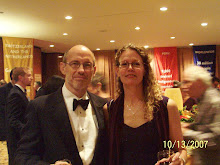Invest in human survival, not just winning war or moon shot
Dear Ms Stine. (Congressional Research Center author of a comparative analysis of R&D investment in Manhattan Project, Apollo Program, and energy independence...)
Thank you for your hard work in researching the details in your report: The Manhattan Project, the Apollo Program, and Federal Energy Technology R&D Programs: A Comparative Analysis, June 30, 2009” report. http://fpc.state.gov/documents/organization/128397.pdf
I found your research on cost effectiveness of R&D most helpful.
Four questions if you have the time.
1. Why didn’t your study include the cost to US tax payers in higher oil prices over the two time periods of R&D investments after each oil crisis? A useful number considering such R&D expenses would not actually be a cost…but rather a measurable investment in reducing costs from oil price increases which are inevitable.
2. In response to your paragraph on “Threat” that says “The threat to which investment in energy technology R&D responds, however, is largely economic rather than military. In addition, the threat posed by climate change, which is related to energy consumption, will likely be gradual and long-term. “ Couldn’t it also be reasoned that the war on terrorism and the our need for middle east oil resources that spark and help then fund terrorism – are the greater national security threat…given terrorists ability to acquire nuclear, chemical and biological WMD…which could do greater harm to our nation than conventional war?
3. A GAO report regarding the cost savings of the US investment in the Eradication of Smallpox used future cost savings as a measure of effectiveness….not just lives saved. The same will be true of weaning ourselves from increasingly costly oil dependence.
4. Last…Given that the report says “marketability of any technologies developed will be a key determinant” shouldn’t the marketing of ‘sustainable energy independence’ to protect our national security and human life on earth be put on a higher level of action than winning a war?

